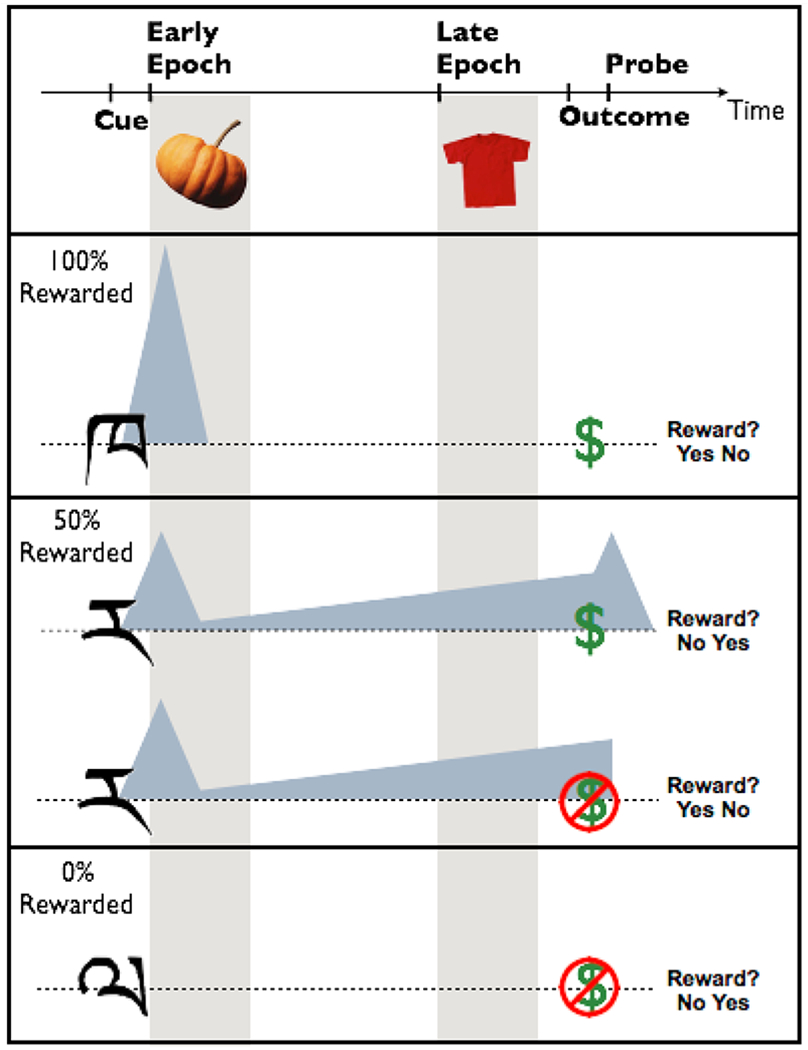Figure 1.

The task was designed to dissociate two physiological profiles of a putative dopamine response during reward anticipation - a phasic response that occurs rapidly and scales with expected reward value (Early Epoch) and a sustained response that increases with uncertainty (Late Epoch). Shaded triangles indicate these dopamine profiles relative to the cue, encoding epochs, outcome, and reward probe events in each trial. Cues associated with 100%, 50%, or 0% reward probability were presented for 400ms. Incidental encoding objects were presented for 1s either immediately following the cue (400ms post-cue onset and 3.2s pre-outcome) or shortly before anticipated reward outcome (3-3.6s post-cue onset and 0-0.6s pre-outcome). Finally, a probe asking participants whether or not they received a reward, with the yes/no response mapping counterbalanced, followed for 1s.
